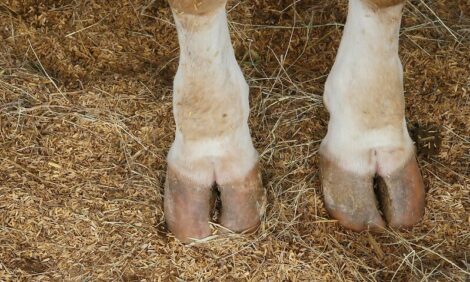



One Step Closer To Mastitis Vaccine
GENERAL - Researchers have discovered components of the bovine mastitis-causing bacterium, Streptococcus uberis that play a key role in the disease. This discovery could lead the way to finally developing a vaccine for this endemic disease, which costs UK farmers alone nearly £200M per year.BBSRC-funded researcher Professor James Leigh and his team from The University of Nottingham in the UK, along with colleagues at the Institute for Animal Health and the University of Oxford, have discovered that Streptococcus uberis - a major cause of bovine mastitis - uses the enzyme SrtA to anchor at its surface the proteins required for it to cause disease.
They have also identified the individual anchored proteins that are required for the bacterium to withstand the responses within the udder that are trying to eliminate it.
Professor Leigh said: "What's really exciting about this is that we've discovered elements of one of the main culprits in bovine mastitis that could actually lead to a vaccine in the future.
"By identifying which components of the bacteria play a role in causing the disease, we can see exactly where to hit it with a vaccine to stop it ever becoming a problem."
At present bovine mastitis requires the large scale use of antibiotics to treat the disease and we know that this may lead to problems of antibiotic resistance down the line. Unfortunately, apart from good husbandry, there is little that can be done to prevent the disease at present.
The team is funded by the Biotechnology and Biological Sciences Research Council (BBSRC) under a scheme that aims to find sustainable ways to reduce the impact of endemic diseases of farm animals on the economy of UK farming industry and the welfare of animals that are kept for meat, eggs and dairy products. This is the BBSRC Combating Endemic Diseases of Farmed Animals for Sustainability (CEDFAS) initiative.
Professor Douglas Kell, BBSRC Chief Executive said: "To feed a growing global population we need to increase food production by 70 per cent by 2050. We have to do this in a sustainable and ethical way and ensure that the UK farming industry remains strong. Endemic diseases of farm animals are extremely costly and cause significant welfare issues. This development is a welcome step towards preventing the suffering and losses associated with bovine mastitis."
TheCattleSite News Desk


